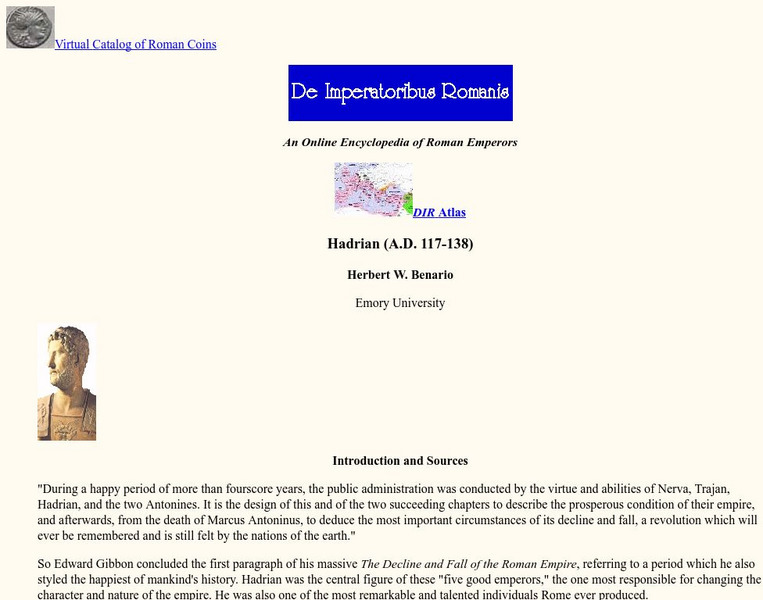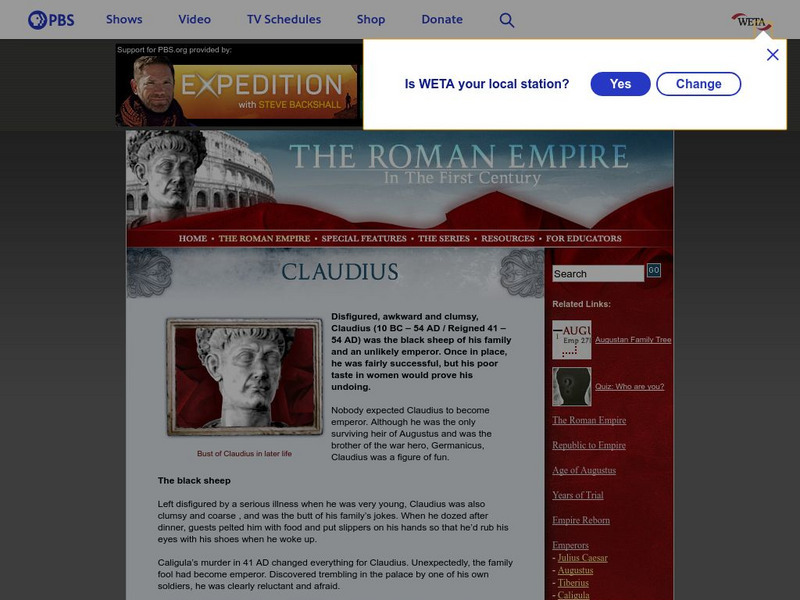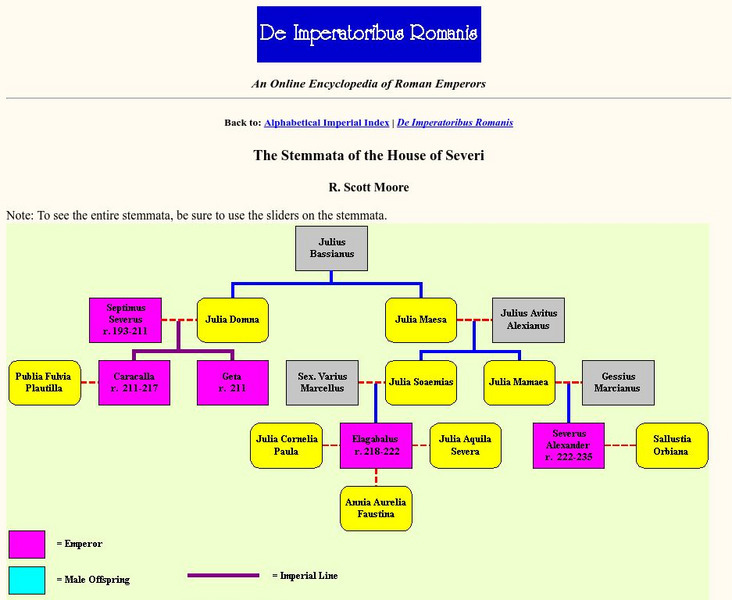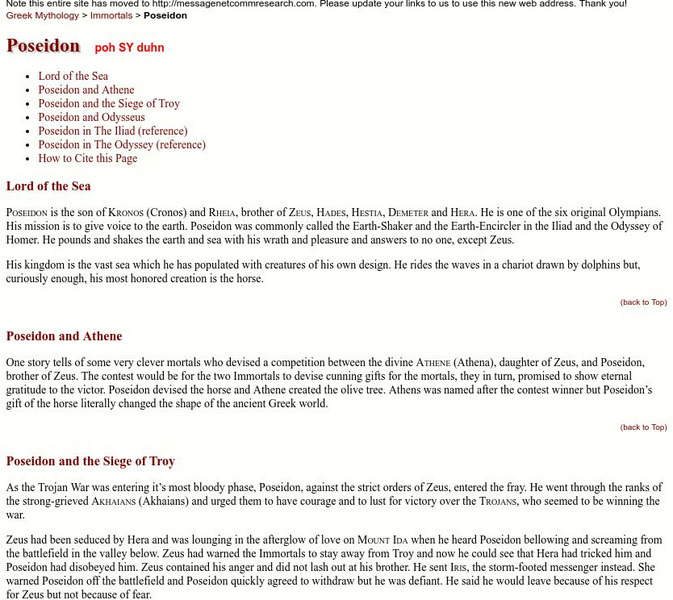Vroma Project
V Roma Project: Augustus and Tiberius: Historical Background
This resource presents detailed information, formatted in a timeline, about Augustus and his successor, Tiberius. It features coin evidence along with genealogy charts. Click the link for the diagram and slide show that describe the...
Franco Cavazzi
Roman empire.net: History of Constantinople
A chronology of the major events in Constantinople's history, plus brief biographies on the rulers of the Byzantine Empire throughout its history.
Other
The Romans: The Empire
The "Five Good Emperors" temporarily abandoned the hereditary principle - each was chosen on his merit by the senate. They were: Nerva, Trajan, Hadrian, Antoninus Pius, and Marcus Aurelius.
Other
Georgetown College: Roman Emperors: The Severi (Ad 193 235)
Page down to The Severi for a list of the Severan Rulers from 193-235 A.D., a very brief summary of their beginnings, and the years they came to power.
Loyola University Chicago
De Imperatoribus Romanis: Hadrian, Emperor of Rome
This site details the life of this wandering emperor. Does a nice job of balancing the good and the questionable information about him. Includes a possible list of places he visited on his extensive travels, as well as his emphasis on...
PBS
Pbs: Claudius
This site contains an interesting account of the life of Claudius. Includes quotes from ancient and modern historians, as well as a scathing description of his second wife, Agrippina.
Loyola University Chicago
De Imperatoribus Romanis: Stemmata of the House of Severi
A family tree of the Severan rulers of the Roman Empire. No other information is given.
Encyclopedia Britannica
Encyclopedia Britannica: Julius Caesar
This detailed encyclopedia entry about Julius Caesar contains all pertinent information from his birth to death. Links are given for more information about people and places relevant to Caesar's life. Pictures and videos are also included.
Other
Zeus: The Olympian
This essay tells the story of Zeus (Roman name "Jupiter"), who was hidden from his father at birth, and how he came to rule all the other gods and the whole earth. Includes citations to the mentions of Zeus in The Iliad and The Odyssey.
Other
Poseidon: God of the Sea
The many mentions of Poseidon (Roman name "Neptune") in The Iliad and The Odyssey are detailed here.
Encyclopedia Mythica
Encyclopedia Mythica: Poseidon
The god of the sea and his famous rivalry with Athena for the favor of the city of Athens is explained in this article. (Roman name "Neptune.")
Smithsonian Institution
National Museum of American History: Parthia: The Forgotten Empire
The Parthian Empire lasted for five hundred years and have been mostly forgotten, despite their prowess in the Middle East. Their kingdom began in 247 BC when Arsaces I was elected as King of Parni. They were the only civilization that...
Library of Congress
Loc: Country Studies: Resistance to Lutheranism
This site describes the resistance to Protestantism, mainly by Charles V who sought to unify the German empire under Roman Catholicism. In 1555 the Peace of Augsburg was signed, giving each ruler (king, duke, etc.) the right to designate...
Curated OER
Educational Technology Clearinghouse: Clip Art Etc: Emperor Charles V
Ruler of the Holy Roman Empire from 1519 until his abdication in 1556.
Curated OER
Educational Technology Clearinghouse: Clip Art Etc: Joseph Ii
The Holy Roman Emperor from 1765 to 1790, and ruler of the Habsburg lands from 1780 to 1790.
Curated OER
Etc: Clip Art Etc: King George I of Great Britain
George I (28 May 1660 - 11 June 1727) was King of Great Britain and Ireland from 1 August 1714 until his death, and ruler of Hanover in the Holy Roman Empire from 1698. George was born in Lower Saxony in what is now Germany, and...












